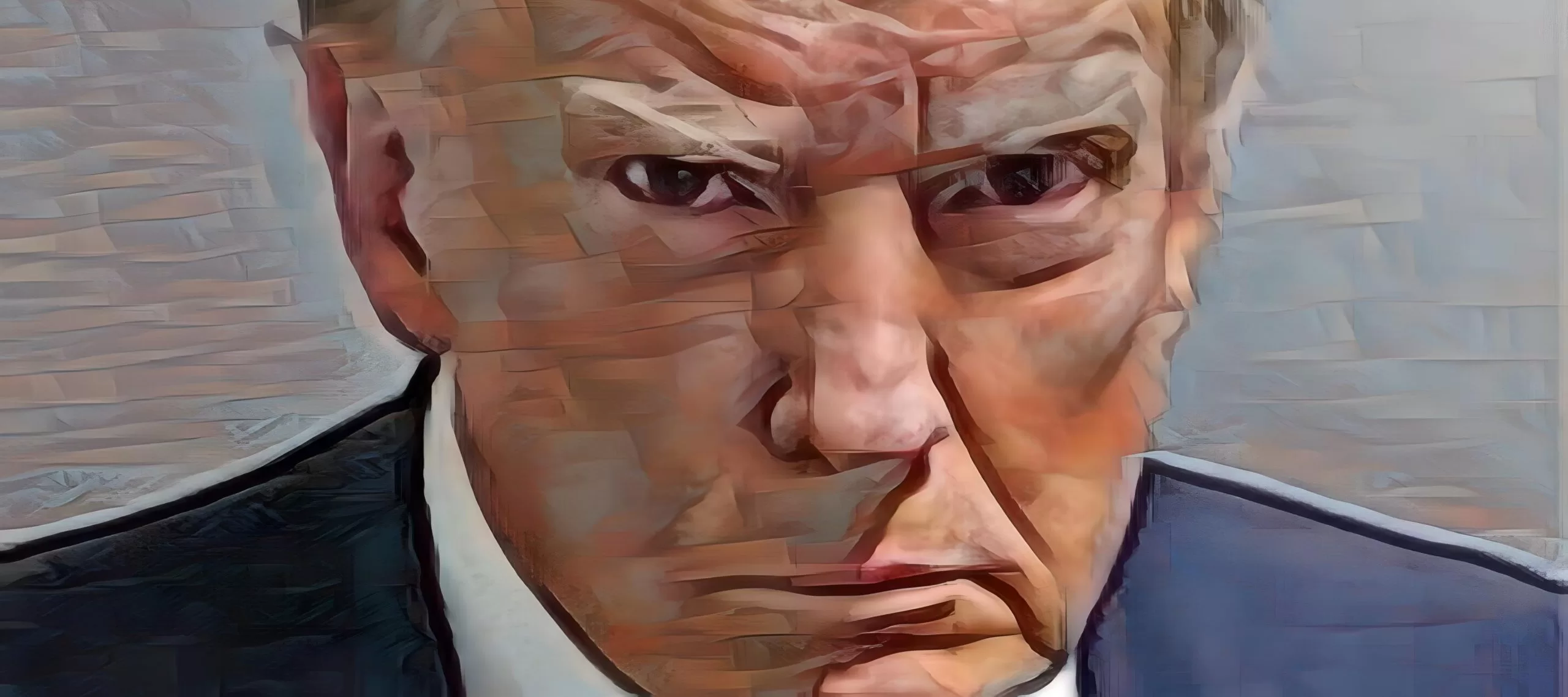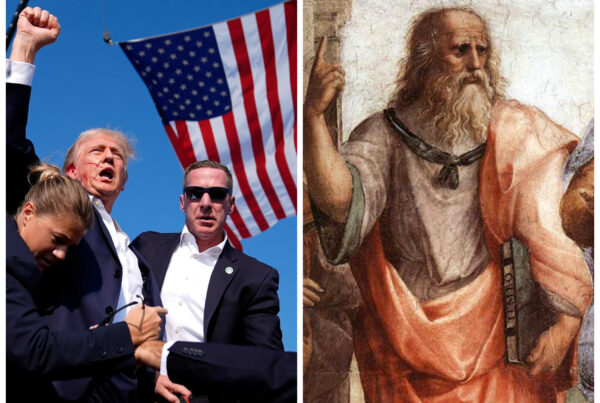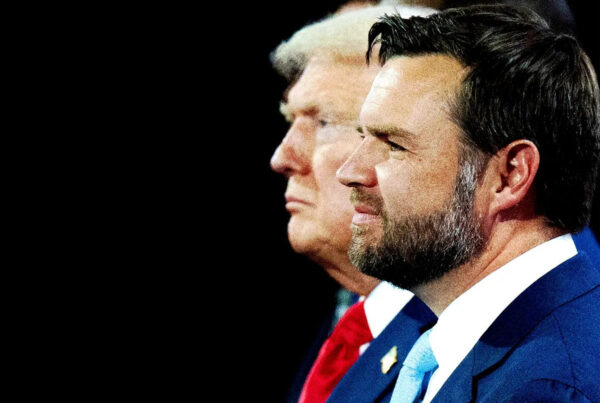From the European perspective, America’s political tempest is not merely current news; it is a continuum of past struggles. As Trump’s infamous mugshot circulates, its ramifications are not limited to American shores. For many on the global Right, it has become a totem, a lightning rod of sorts.
The Democrats’ audacious maneuvers spark a historical déjà vu for many in Europe. Their methods of sidelining and vilifying Trump are eerily reminiscent of the dark chapters of Europe’s own past. The National Socialists used propaganda masterfully, with Joseph Goebbels orchestrating a narrative that isolated and demonized their adversaries. This was evident in their portrayal of Jews, Communists, and any other groups deemed “undesirable.” Meanwhile, Communist regimes, particularly during the time of Stalin, were infamous for their show trials. Notable figures, such as Nikolai Bukharin, a revolutionary who was later accused of plotting against the state, were subjected to orchestrated trials based on spurious charges, only to be condemned and executed. The Georgia indictment, for some, mimics these unsettling episodes, bearing hints of strategic machinations rather than genuine judicial pursuits.
Deepening our analysis, the fervor with which the Democrats seek to oust Trump conjures memories of European pasts where regimes zealously clung to power. From the sprawling courtyards of Versailles to the secretive chambers of the Tower of London, history is replete with leaders who could not brook rivals. They were willing to spin elaborate tales, creating smokescreens that concealed systemic fissures beneath.
In the midst of the twenty-first-century American saga, dark undercurrents whisper of clandestine agendas and backroom dealings. If rumors are to be believed, vaults of classified documents could soon see the light of day, perhaps divulging truths that many in the echelons of power would prefer buried. The potential of sweeping pardons, reminiscent of times when monarchs and dictators granted favors to secure loyalties, cannot be dismissed. When gossip circulates about seismic shifts in the American political landscape, one cannot help but recall Europe’s own epochs of transformative, and often tumultuous, change.
At the forefront of this unfolding drama stands the “Russia collusion” narrative, a storm that has dominated headlines but may now be dissipating. Once seen as the Democrats’ ace in the hole, its significance appears to wane, leaving many to ponder its veracity. With its decline, stalwarts like Hillary Clinton, who once seemed impervious, might find themselves adrift, ensnared in the very web they might have had a hand in weaving. Such is the cyclical nature of power and politics, a dance as old as history itself.
For Europeans, it is impossible to overlook the resonances between Trump’s policies on immigration and those of Viktor Orbán, Hungary’s redoubtable leader. Though separated by the Atlantic Ocean, these figures emerge as parallel linchpins in a global struggle against unbridled globalization and mass migration. Their narratives represent more than mere political strategy; they encapsulate a burgeoning ideological current, evoking shades of Europe’s own complexities.
Take Orbán’s efforts to fortify Hungary’s borders against uncontrolled immigration, notably in the face of the European Union’s clamor for open borders. His administration has been unapologetic in erecting fences, arguing that each nation-state should have the sovereign right to preserve its cultural integrity and secure its borders. This staunch commitment to national identity cannot help but bring to mind Trump’s own quest for a wall along the U.S.-Mexican border, a plan that became almost a leitmotif of his presidency. Both projects were met with a volley of criticisms, often characterized as “xenophobic” or “isolationist” by mainstream international media, but seen as necessary survival mechanisms by their proponents.
Furthermore, the rationale behind these leaders’ immigration policies is akin to Europe’s own historical bouts with sovereignty and the preservation of cultural heritage. In Orbán’s view, the dilution of national character through mass immigration could lead to a loss of European identity. Trump, though operating in a society traditionally more receptive to immigration, articulated similar concerns, especially in terms of unchecked immigration affecting the labor market, social systems, and even national security. Both leaders, thus, align themselves with a strand of conservative ideology that advocates a regulated approach to immigration, standing in stark contrast to the cosmopolitan globalist vision.
Also striking is how Trump and Orbán not only articulate but also emblemize their respective movements. Orbán is a hero for many European conservatives, symbolizing resistance against what they perceive as a quasi-imperial European Union encroaching on national prerogatives. Similarly, Trump has evolved into an international icon of conservative resistance, his policy decisions reverberating in the policy discourse from Brussels to Melbourne. Trump and Orbán’s very existence and prominence lend credence to their shared philosophy, often acting as a bulwark against the tidal wave of international liberal sentiment.
So, when observed through a pan-European prism, the policy trajectories of Trump and Orbán reveal converging fault lines in global politics. They challenge the dogma of inevitable globalization and cultural amalgamation, reviving discussions around national identity that have their roots deep in European soil. Their political stances, often portrayed as discordant notes in a globalist symphony, resonate as harmonious chords for those attuned to the music of national preservation and cultural integrity.
While the Democrats wave the banner of democratic vanguards, their tactics bear traces of strategies from Europe’s more totalitarian epochs. Trump’s story recalls the many European dissenters who were maligned only to be posthumously acknowledged. From this angle, Trump’s tribulations manifest as part of a historical pattern of persecuted visionaries.
Trump’s policies reflect broader global ideological schisms. The political odyssey he undertakes creates sentiments familiar to European conservatives. No matter the outcome of the impending election, the discourse it has generated will remain contentious. The quest for addressing perceived grievances will echo from the New World to the old bastions of Europe.
The unveiling of Trump’s mugshot has evoked a gamut of emotions. This image, beyond its immediate context, has implications that span conservative spectrums. The undertones of the Georgia indictment, hinting at potential curtailment of political discourse, are stark reminders of Europe’s own bouts with speech suppression. Yet, rather than a portrait of defeat, Trump’s mugshot emerges as a testament to defiance. That familiar, unyielding visage transports many back to Trump’s era of The Apprentice. It is an image heralding his iconic proclamation: “You’re fired.”
https://t.co/MlIKklPSJT pic.twitter.com/Mcbf2xozsY
— Donald J. Trump (@realDonaldTrump) August 25, 2023









